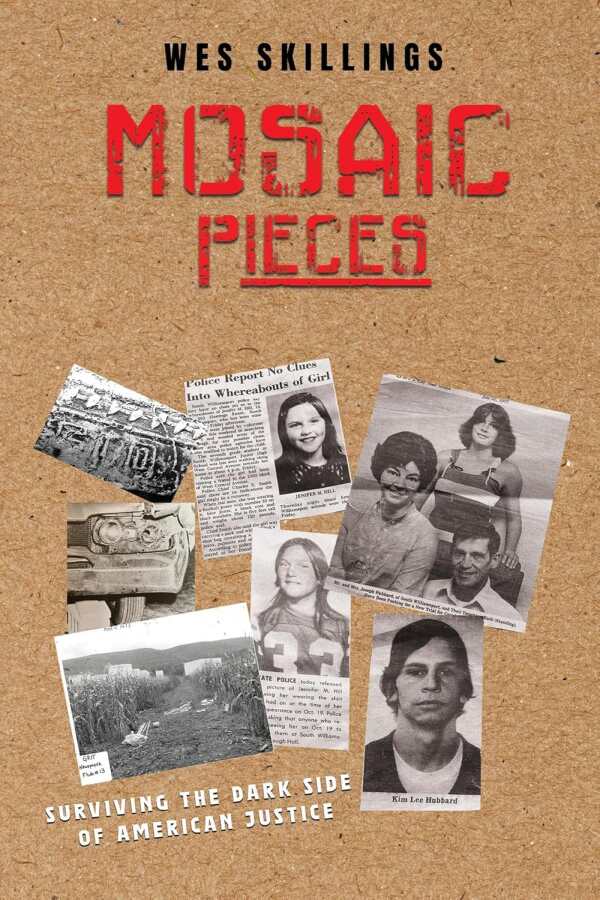
Mosaic Pieces
Surviving the Dark Side of American Justice
The psychological toll of spending years pursuing vindication is explored in Mosaic Pieces, a vivid true crime book–cum–family saga.
Journalist Wes Skillings’s sobering true crime book Mosaic Pieces is about justice gone awry.
Focused on a contested conviction, the book draws from decades’ worth of trial transcripts, interviews, and newspaper clippings to reconstruct the 1973 murder of twelve-year-old Jennifer Hill in Williamsport, Pennsylvania, and the subsequent trial and conviction of Kim Hubbard. The Hubbard family, whose lives were upended by the case and its aftermath, also receives attention, with the book alternating between family memories, impersonal courtroom scenes, and post-trial witness interviews.
Evocative descriptions of events like the discovery of Jennifer Hill’s body make the book immersive, conjuring the isolation of a crime scene, the claustrophobia of a courtroom, and small-town suspicions. However, the book’s density also hinders its impact. Secondary figures are given extensive backstories that exceed their relevance in the tale, as with a reference to Joe Hubbard’s stepfather escorting President Woodrow Wilson on an overseas trip. Such digressions slow the book’s momentum. Instances of repetition inhibit it further: The facts are established but then reasserted in subsequent chapters with little variation, as with reiterations of Kim’s father’s rigorous efforts as an investigator.
Indeed, as the book continues, Joe Hubbard, Kim’s father, becomes more focal. He is shown to have been consumed by his quest to free his son, searching for exculpatory evidence until he unraveled. Indeed, his eventual death is made to embody the generational cost of his son’s conviction. That his wife and daughter were ostracized by their church and peers is also acknowledged. These fragments are part of a larger picture that the book strains to complete, one marked by irresolvable contradictions in witness accounts, the questionable handling of evidence, and the human cost of years spent pursuing vindication.
The book’s structure is quite fragmented, too: Each chapter focuses on a person, event, or evidentiary hinge, akin to a file in a case binder. And while the evidence-driven chapters include procedural analyses, the people-centered chapters are more intimate, honoring the lived experiences of those involved. Everything leads toward an introspective conclusion that deviates from the case itself to argue that the Hubbard story is representative of broader injustices in the US, with Skillings opining that once a jury finds someone guilty, proving their innocence becomes nigh impossible. Grammatical and typesetting errors, as with misaligned spacing, midword breaks, and missing commas, are an additional detraction.
The intriguing true crime book Mosaic Pieces explores the aftermath of a murder trial.
Reviewed by
pine breaks
Disclosure: This article is not an endorsement, but a review. The publisher of this book provided free copies of the book and paid a small fee to have their book reviewed by a professional reviewer. Foreword Reviews and Clarion Reviews make no guarantee that the publisher will receive a positive review. Foreword Magazine, Inc. is disclosing this in accordance with the Federal Trade Commission’s 16 CFR, Part 255.
